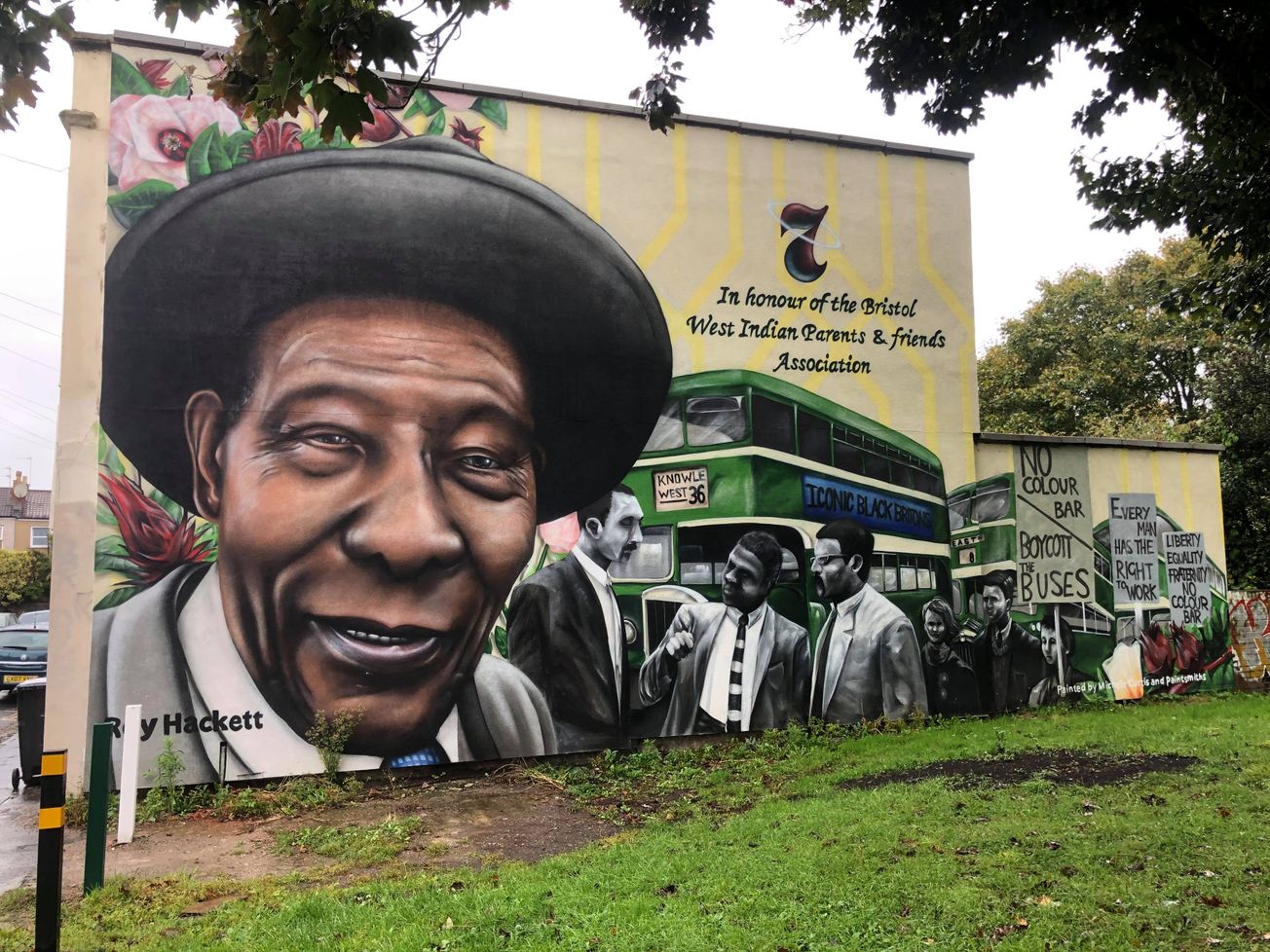By Sid Power, Third Year History
St. Paul’s today is a welcoming cultural hub that boasts some of the best restaurants in the city and is also host of the carnival, one of Bristol’s premier attractions. It was not always this way. For decades, Bristol endured self-enforced segregation between the white population and immigrant communities that arrived during the 50’s and 60’s.
Those settling in Bristol, many part of the Windrush generation, overwhelmingly found themselves in St. Paul’s. Victims of discriminatory employment and housing practices, and suffering almost daily racism, the community became insular and tensions grew.
In absence of adequate support from the council, the community led itself. That leadership emanated in large part from the Seven Saints of St. Paul’s. They were essential in both improving the community of St. Paul’s and easing the tensions with the rest of the city.
Artist Michelle Curtis was commissioned in 2015 to commemorate the seven. In the aftermath of the toppling of the Colston statue, Epigram wanted to further explore these commemorations in no danger of removal.
The Honourable Owen Adolphus Henry
158 City Road, St. Pauls
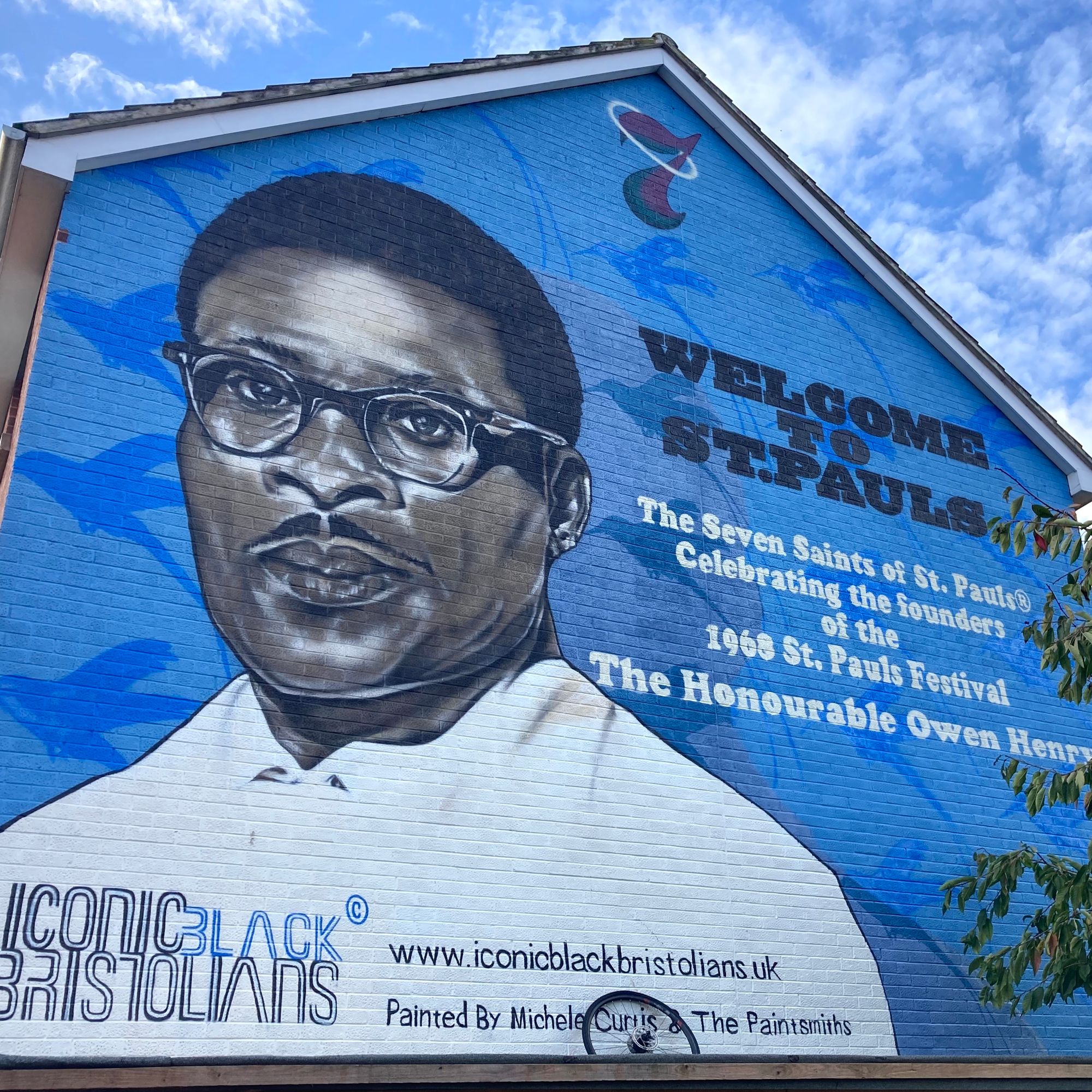
Originally from Jamaica, Henry emigrated to Britain in 1955. Nicknamed the ‘Mayor of St. Pauls’ by residents, Henry was a well-known businessman and a dominant figure in the community.
In 1962, he and Clifford Drummond founded Homeland’s Travel Service, chartering cheaper flights to the Caribbean and therefore allowing immigrant residents of St. Paul’s to reunite with their families on holiday.
He also co-founded the United Housing Association (UHA) and the Commonwealth Co-Ordinated Committee (CCC), both organisations at the forefront of the fight against racial inequality in Bristol for generations.
An architect of the Bristol Bus Boycott and co-founder of the St. Paul’s festival committee, Henry’s activism brought countless tangible benefits to St. Paul’s. Awarded the Order of Merit by the Jamaican PM in 1979, Henry’s legacy endures in Bristol.
Barbara Dettering
45 Tudor Road, St. Agnes
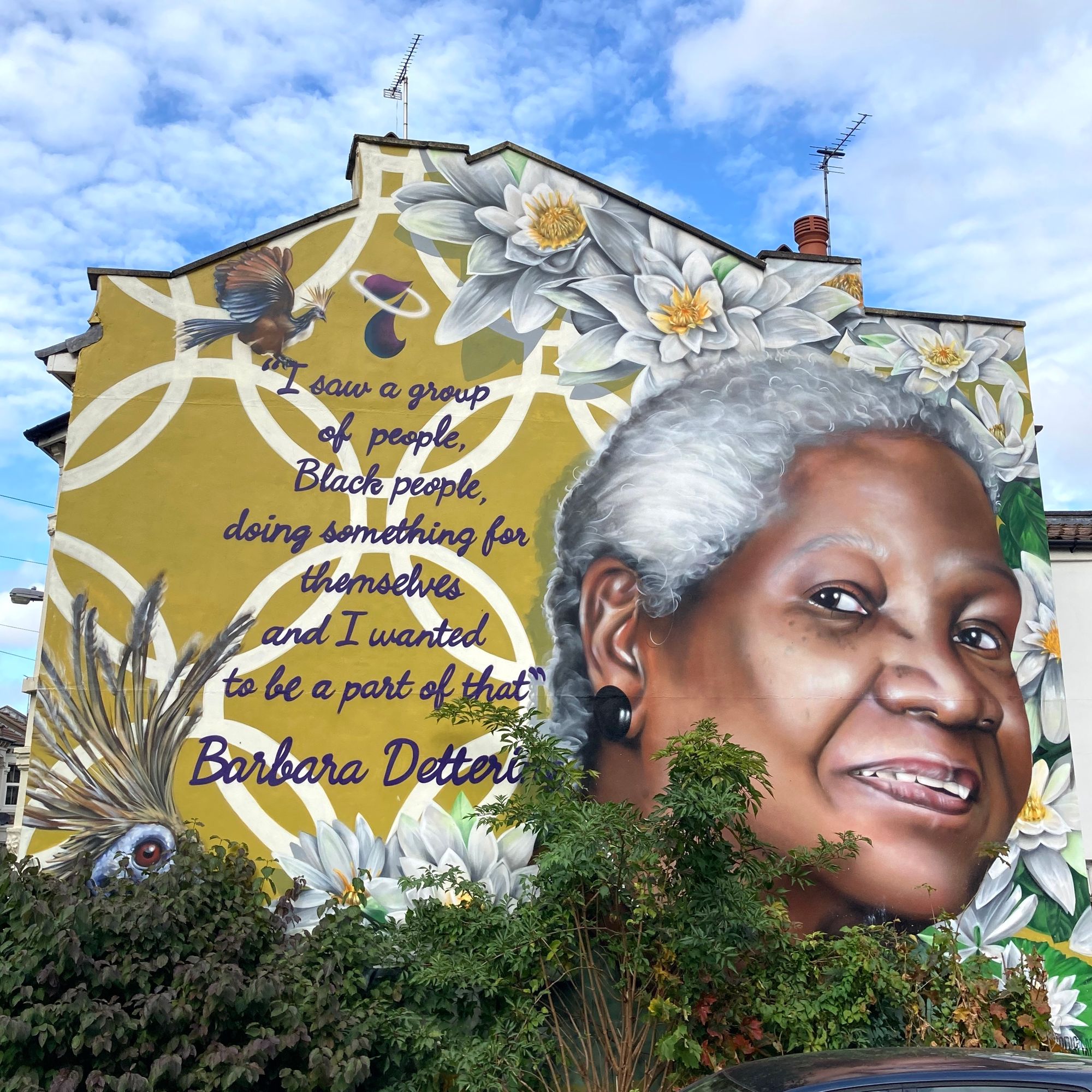
One of two surviving Saints, Dettering has fought for equality for over half a century. A social worker by profession, Dettering also co-founded the UHA, the first black-owned housing association in the South West. Operating before the Race Relations Act 1968 prohibited discrimination for housing based on race, the organisation helped immigrant arrivals to Bristol find accommodation in an often hostile market.
Dettering is still active in St. Paul’s today – she is part of the elder’s group in the Malcolm X Community Centre. In recognition of her contribution to Bristol, the Jamaican High Commission awarded Dettering a commendation.
Dolores Evande Campbell
17 Grosvenor Road, St. Pauls
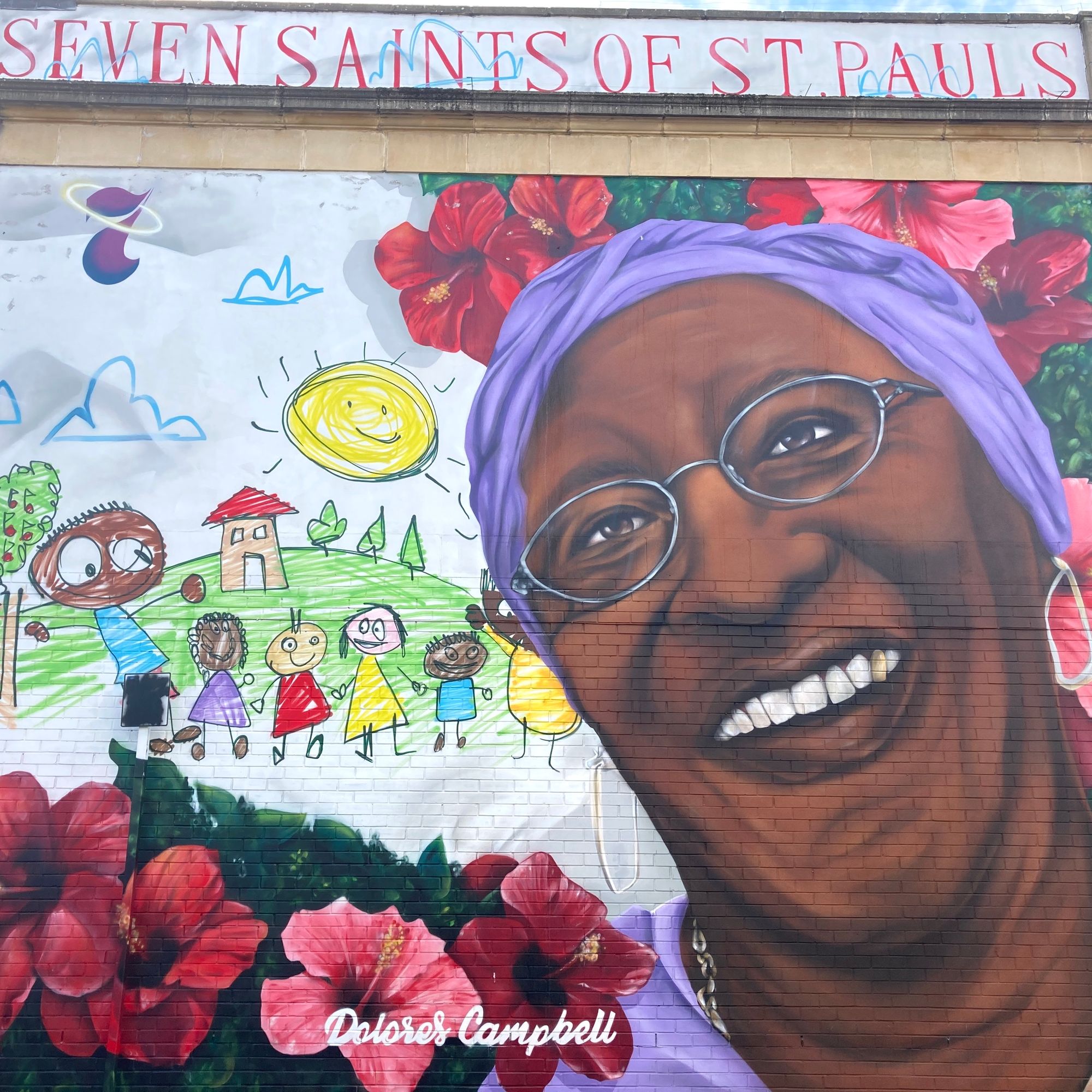
Also with roots in Jamaica, Campbell trained as a nurse upon arrival to Bristol in the 1950’s. A co-founder of the St. Paul’s festival committee, the United Housing Association and the CCC’s first female member, she became synonymous with activism in St. Paul’s.
A long-serving Trade Unionist, Campbell, like all the Saints, campaigned for decades for equality in her community. In later life she chose to foster, caring for more than 30 children until her death in 2011. Poet laureate Miles Chambers called Campbell, ‘the surrogate mother of black British culture’.
Carmen Beckford MBE
38 St. Nicholas Road, St. Agnes
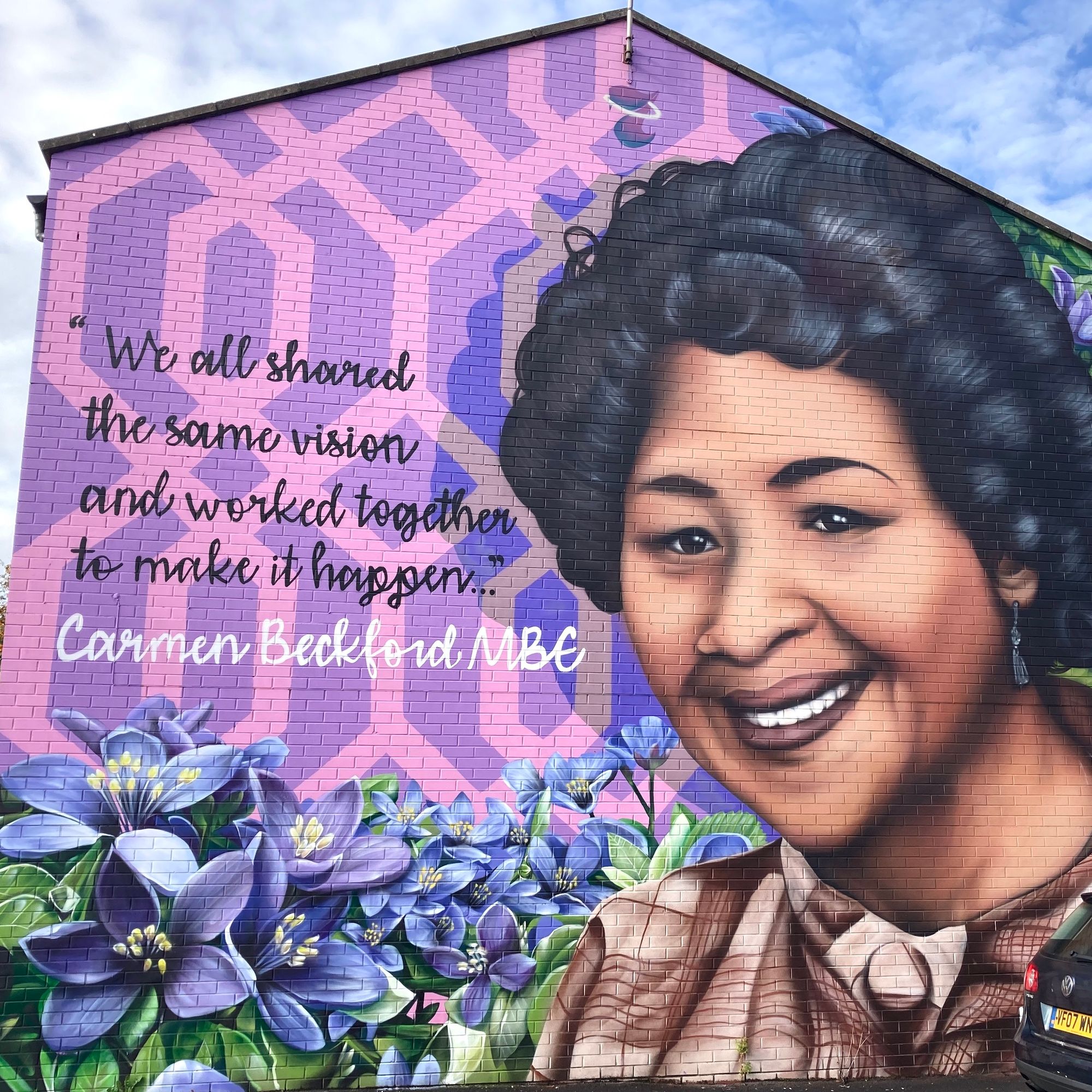
Arriving in the UK at 17, Beckford trained in Nursing before joining the CCC and becoming their Race Relations Officer in 1965. Another co-founder of the St. Pauls’ festival, Beckford then went on to be the inaugural community development officer at Bristol City Council between 1978-86.
Note that this was during a time of high societal tension – the National Front were standing in regional and national elections throughout the 70’s, and 1980 saw the St. Paul’s and Southmead riots. Despite this, in 1982, Beckford was awarded an MBE for her outstanding contribution to her community. She was the first black female recipient in the South West.
Audley Evans
83 Ashley Road, Montpellier

A founding member of the CCC, involved in the conception of the St. Paul’s festival and a coordinator of the Bristol bus boycott, Evans was heavily influential in the progression of St. Paul’s in the 60’s. A cricketer for the Bristol West Indies team, Evans chose to emigrate for a second time, settling in Florida.
He started a new family there, whom he never told of his black rights campaigning in Bristol. Despite emigrating to the states, Evans’s impact cannot be understated. Many historians believe the Bristol Bus Boycott served as a catalyst, or at least was influential, In the introduction of the Race Relations Act 1965.
Clifford Drummond
41 Morgan Street, St. Agnes
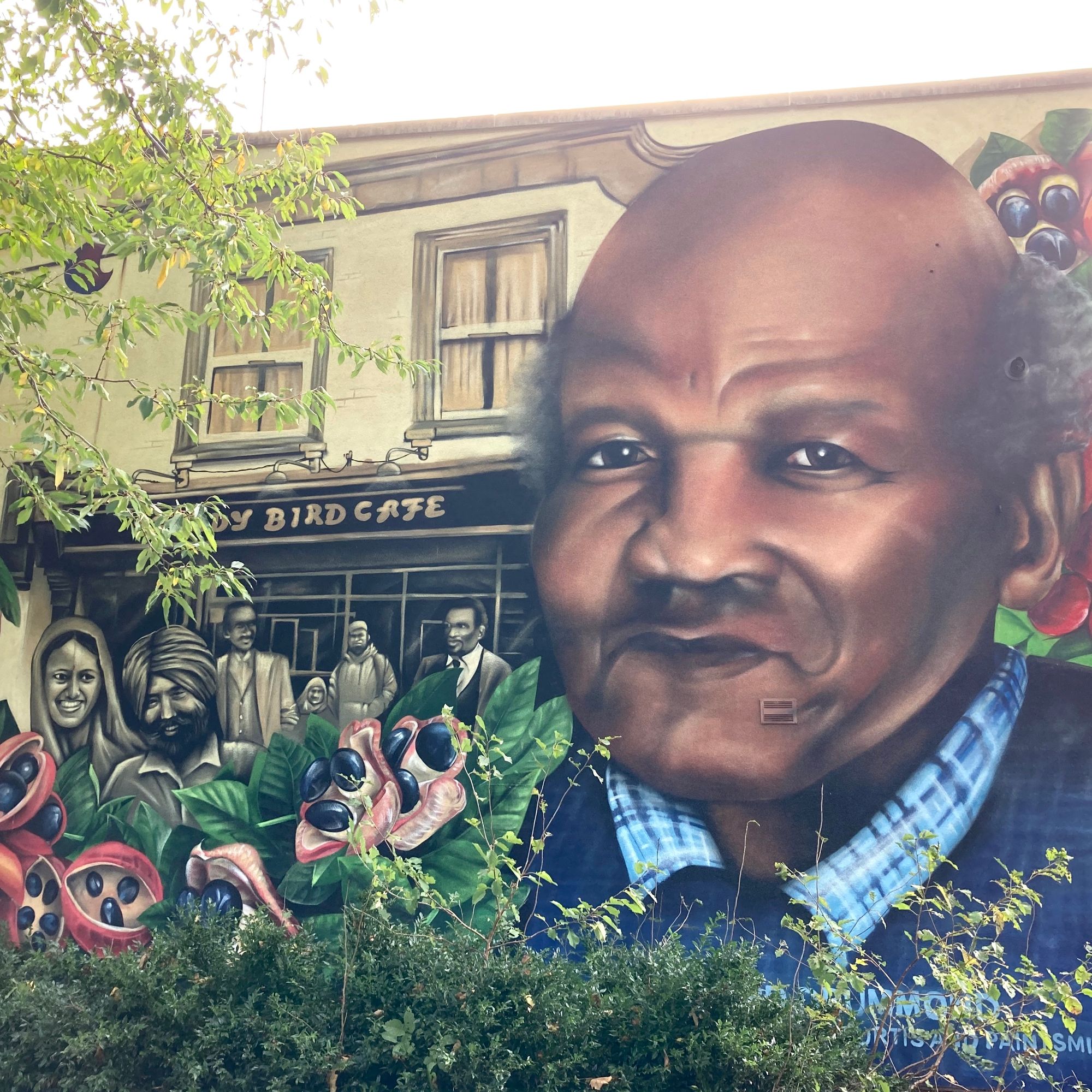
Drummond emigrated from Jamaica in 1954. He was the inaugural secretary and treasurer of the CCC and ran the Speedy Bird cafe in St. Paul’s. The cafe was a social hub for the community and the first meeting place of the CCC. Co-founder of the Homeland’s Travel Service, he helped the black and Asian immigrant communities with complex immigration and citizenship regulations.
Drummond spent his final decade campaigning on behalf of his ex-colleagues for asbestos poisoning. A testament to his character, Drummond, an asthma sufferer and exposed to the same conditions as his ex-colleagues, refused to be tested for poisoning or claim himself. He was later hospitalised and found to have the same condition as those he was representing.
Roy Hackett OBE
15 Byron Street, St. Agnes
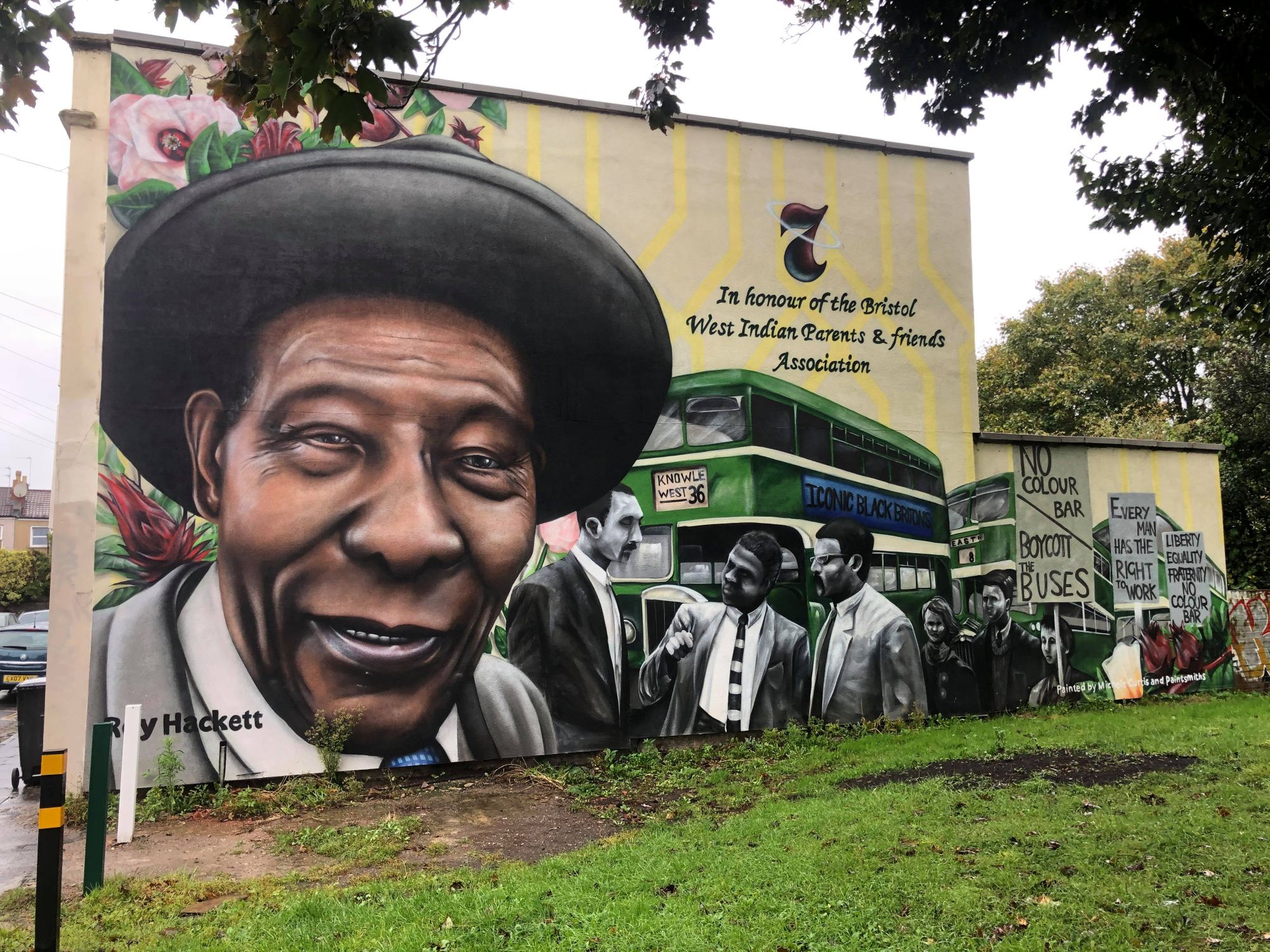
Hackett, at 92, is the second surviving Saint. First settling in Toxteth, he spent his first night Bristol in a shop doorway after rejection from hotels displaying ‘no Gypsys, Irish, Dogs or Blacks’ signs. Encountering Guy Bailey moments after his rejection by the Bristol Omnibus Company, Hackett was the original architect of the bus boycott.
He was also co-founder of the CCC, chair of the Bamboo Club, and the oldest member of the Bristol Race Equality Council. Hackett has been an integral part of St. Paul’s for half a century. In 1993, he received his MBE and has also been awarded by the Jamaican High Commissioner for outstanding contribution to the community.
The Seven’s legacy is hard to understate. Their initiatives immeasurably strengthened the community and offered assistance and advice at a time where it often wasn’t forthcoming from the state. The bus boycott had a national impact and many believe it to be an important prelude to the Race Relations Act of 1965.
Featured Image: Epigram / Sid Power
If you would like to learn more about the Saint’s and take a tour of the murals you can download the Seven Saints of St Pauls Art and Heritage Trail app.

